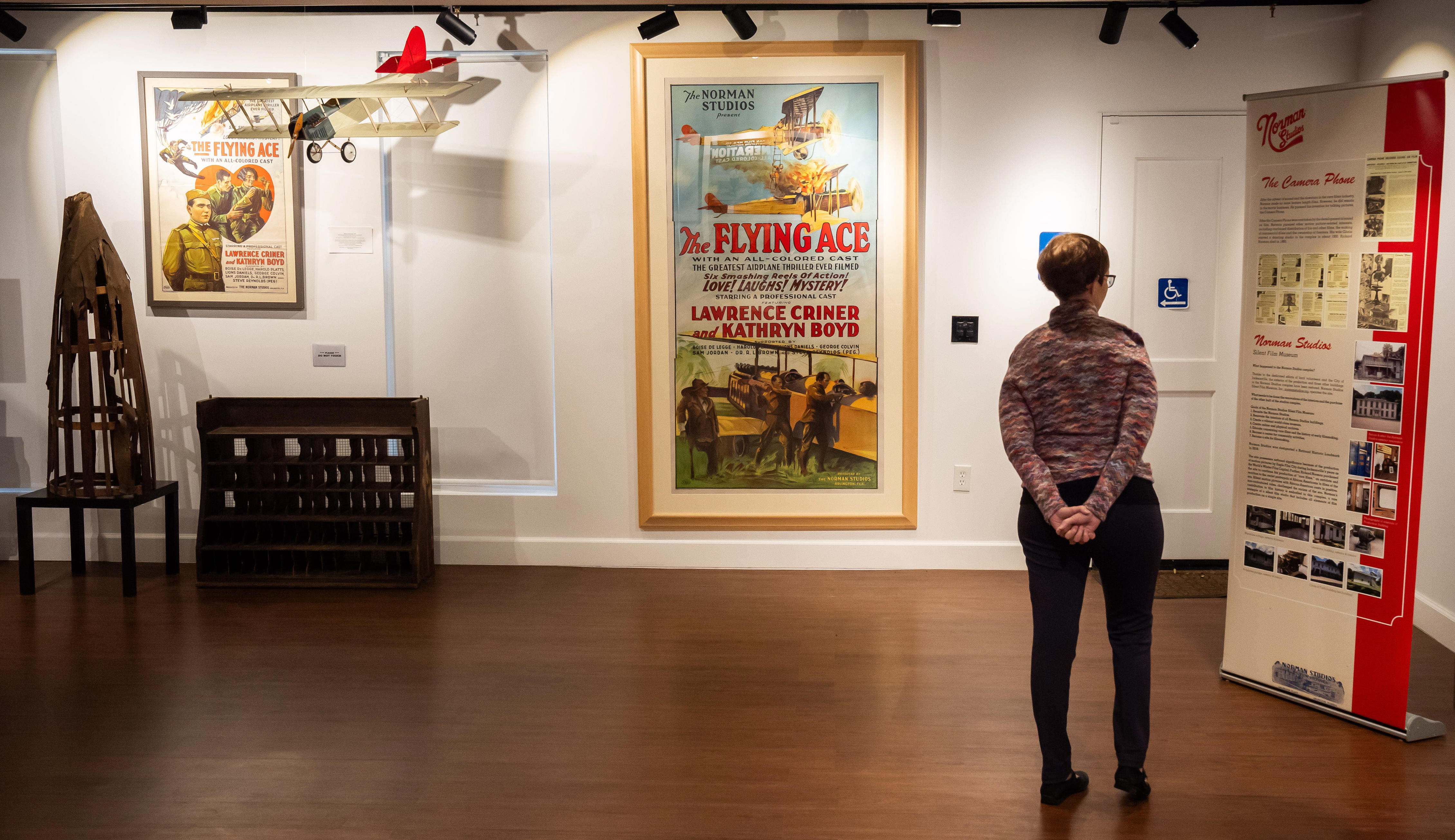Florida's Forgotten Film Legacy: Norman Studios Reveals Jacksonville's Cinematic Roots

A Glimpse into the Past: Norman Studios Silent Film Museum
Nestled in the heart of Jacksonville, the Norman Studios Silent Film Museum stands as a testament to a bygone era when the city was known as the "Winter Film Capital" of the world. Though much of its history has faded, the museum and its dedicated volunteers are working tirelessly to preserve and share this unique piece of American cultural heritage.
The museum, located at 6337 Arlington Road, offers tours on the first and third Saturdays of each month from 11 a.m. to 3 p.m. Admission is free, though donations are always welcome. The site is a full silent-film studio complex, featuring a set building, a wardrobe cottage, a props garage, and a generator building, with the main studio now serving as a museum. Despite being added to the National Register of Historic Places in 2015, the site is still largely underutilized, with most buildings closed to the public.
Barbara Wingo, president of the Norman Studios board of directors, emphasizes that there is no other place like this in the country. “This is a full silent-film studio complex,” she said. However, one key element is missing — a water tower. While the original water feature that once fronted Arlington Road was filled in decades ago, Wingo hopes to collaborate with local archaeological groups to uncover what might be buried beneath the surface.
The Legacy of Richard E. Norman
The origins of the Norman Studios date back to 1916 when Eagle Film City began operating a silent-film studio on the site. In the early 1920s, Richard E. Norman acquired the property and began producing race films aimed at Black audiences. His decision to establish his studio in Jacksonville was influenced by the city's large Black population and favorable weather conditions for filming.
Norman’s films, such as "Sleepy Sam the Sleuth," "The Crimson Skull," "The Green Eyed Monster," and "The Bull-Dogger," were groundbreaking at the time. Unfortunately, most of these films have been lost or deteriorated over the years. Only one film, "The Flying Ace," survives in its entirety. It was added to the Library of Congress's National Film Registry in 2021. This film tells the story of a World War I pilot who becomes a railroad detective, and visitors can see pieces of the prop airplane used in the production.
Devan Stuart Lesley, media and publicity director, remains optimistic about the possibility of recovering more films. She believes "The Bull-Dogger," a 1922 movie starring Black rodeo cowboy Bill Pickett, may still exist and could be found in Europe.
More Than Just a Museum
Beyond the exhibits, the museum houses a brick-lined vault that was opened in 2002 after the city purchased the complex. Inside, there were old reels, film cans, equipment, and even a toy camera that belonged to Norman’s son. These items are now part of the museum’s collection, alongside vintage movie posters and cameras.
Interestingly, many locals associate the site with dance rather than film, as it was home to the Gloria Norman Dance Studio for decades. The studio was run by Richard Norman’s wife long after the days of filmmaking had ended.
Despite its rich history, the museum currently does not show films or host large events due to lack of permits. However, future plans include developing the second floor of the main building, converting the wardrobe cottage into a concession stand and gift shop, and adding a summer camp for kids.
Visiting the Museum
For those interested in exploring this hidden gem, the museum is open for tours on select Saturdays. Visitors can take in the exhibits, learn about the history of silent films, and even play an interactive flying game. While the museum is free to enter, donations are encouraged to support ongoing preservation efforts.
As the Norman Studios continue to work toward their vision of becoming a vibrant cultural hub, they remain committed to honoring the legacy of Jacksonville’s film past. With continued community support, the museum has the potential to become a significant destination for film enthusiasts and history buffs alike.
Post a Comment for "Florida's Forgotten Film Legacy: Norman Studios Reveals Jacksonville's Cinematic Roots"
Post a Comment